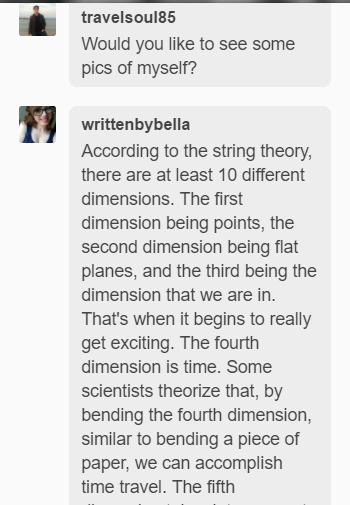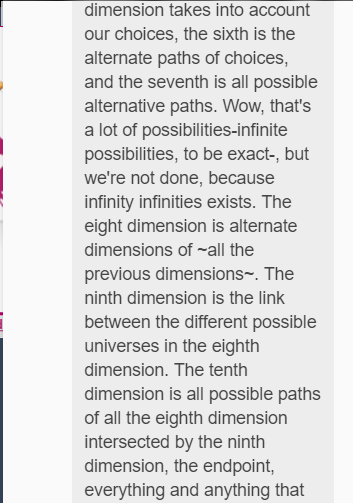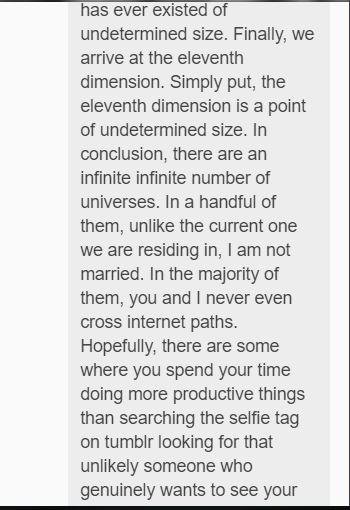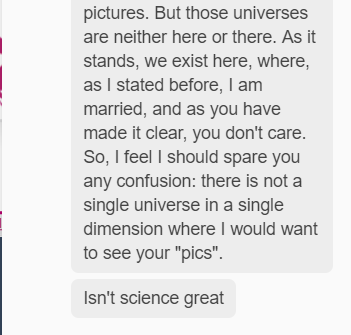Isabella Rogge's Blog: The Redhead Writer, page 102
June 11, 2017
writtenbybella:he blocked me
"Writing is a dangerous profession. There is no telling what hole you may rip in society’s carefully..."
- Danielle Orner (via writerniche)
"I disappeared into books when I was very young, disappeared into them like someone running into the..."
- Rebecca Solnit (via asktheangels)
June 9, 2017
delamontee:
Milk and Honey
This excellent shirt my aunt sent me + frizzy summer hair

This excellent shirt my aunt sent me + frizzy summer hair
June 8, 2017
bigdreamsandwildthings:Books & Cupcakes May Book Photo...
heywriters:
crazymusings:
heywriters:
mythcreantsblog:
If you read a classic story and it seems...
If you read a classic story and it seems bad, it’s probably bad. Classics aren’t exempt from the rules of storytelling because they’re old.
Classics are considered “classic” because they were the earliest example, the best early example, or the most popular early example of a specific style or genre. I find Oliver Twist to be childish, The Great Gatsby to be unenjoyable, Frankenstein and The Scarlet Letter needlessly dense, I really dislike Wuthering Heights, and Pride & Prejudice contained a lively amount of exclamation marks. However, all of them were pioneers of modern fiction, and without the foundation set by those works
none of us would be writing today. It’s smart to learn the origins of things, smarter to improve upon them.
If you’ve never read the 1818 Frankenstein (the 1831 is the typical, much more dense one) I’d highly recommend it. Marry Shelly’s husband Percy heavily revised it, with much more dense, long-winded language (something like 5,000 more words, I think) and the themes are slightly different.
I fell in love with Frankenstein through the 1818 version. For example,
Mary:
“Nor were these my only visions. The raising of ghosts or devils was also a favorite pursuit and if I never saw any I attributed it rather to my own inexperience and mistakes than want of skill in my instructors.”
Percy: “Nor were these my only visions. The raising of ghosts or devils was a promise liberally accorded by my favorite authors, the fulfillment of which I most eagerly sought; and if my incantations were always unsuccessful, I attributed the failure rather to my own inexperience and mistakes, than to a want of skill or fidelity in my instructors.”
Wow, thank you for the suggestion. You know, I tried reading it again after high school and was put off by how dense it was. Perhaps the 1818 is what I read in high school, but it makes total sense that Percy would do that. *eye roll* that’s so Percy.












